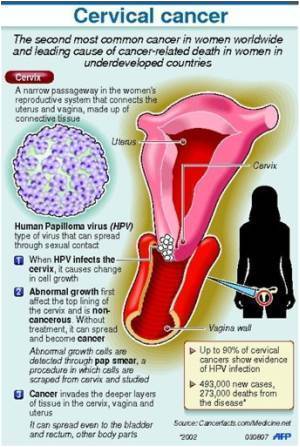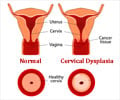Most women who are infected with human papillomavirus (HPV) virus can develop cervical cancer. Researchers have identified the missing link behind the activation of the beta-catenin oncogene.

These early findings suggest clinical implications that are both preventive and therapeutic, says the study's senior investigator, Aykut ren, M.D., an associate professor of oncology at Lombardi
"We can potentially develop a screening method to check for HPV and beta-catenin activation in pap smears," he says. "That will identify individuals at a higher risk of developing cancer compared to ones who are only HPV positive. Then they can be more closely followed for cancer development."
Secondly, ren points out that there are new drugs being developed to target the Wnt pathway that includes the beta-catenin protein. "Activation of this pathway is very common in colon cancer and is found in a dozen other cancers, so these same novel drugs might be useful in treating advanced stage cervical cancer patients," he says.
ren points out that while cervical cancer has been kept in check in the U.S. and other developed nations due to use of Pap smears and, of late, the HPV vaccine that protects uninfected females, cervical cancer is the second leading cause of cancer deaths in women worldwide. "New international approaches to control and treat cervical cancer are desperately needed," he says.
Their novel mouse model was created by cross-breeding two other strains of transgenic mice one that expresses HPV genes in the cervix and the other that forces the beta catenin/Wnt pathway to be constantly activated, also in the cervix. While the HPV infected mice are programmed to develop cervical cancer, the tumors that grew in the double transgenic mice were larger and more aggressive.
Advertisement















